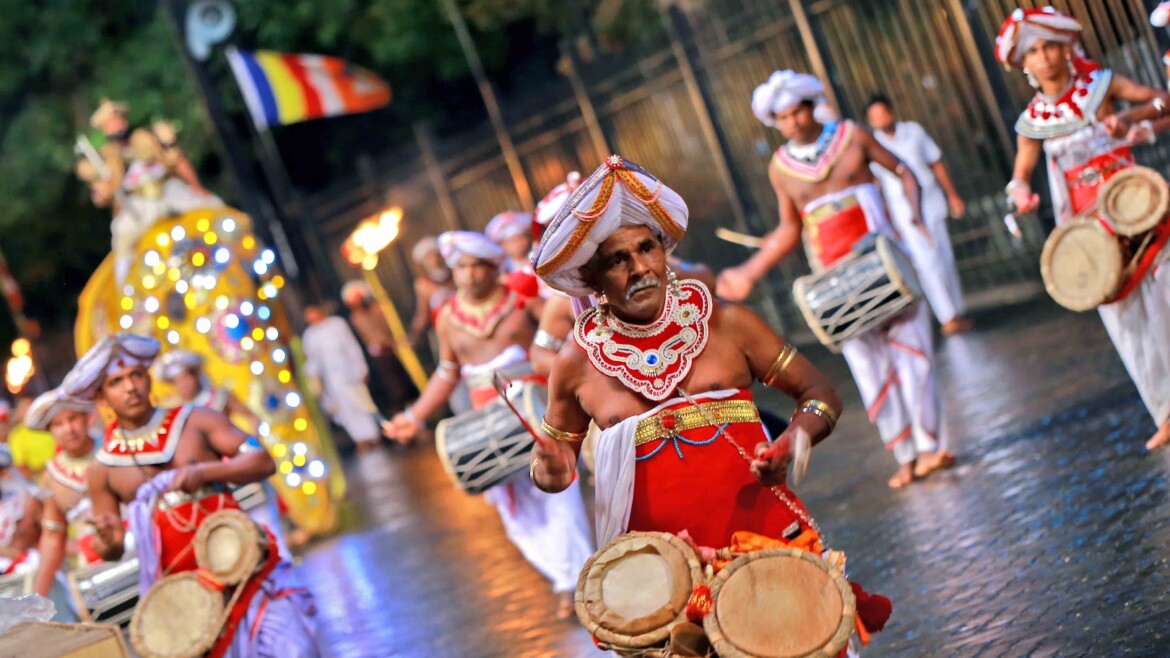The Kandy Perahera in Sri Lanka is not only one of the oldest rituals in Buddhism, but one of the oldest extant rituals in all of Asia. “Perahera” means procession. Processional music and dancing is a marker of antiquity because some of the earliest ritual processions grew from stationary artists starting to move. It follows that dance steps and sequences, as well as musical modalities, evolved to suit a large moving mass of people. The Kandy Perahera is one of the largest rituals of processing people on the planet, featuring elephants, drummers, monks, dancers, swordsmen, musicians, acrobats, fire-handlers, and whip-crackers clearing the way. It is Buddhism as ancient, exotic, and integrated with local belief as one can find.
In Sri Lanka (formerly Ceylon), the most important Buddhist relics are the Tooth of the Buddha and the Bodhi Tree. Legendary history has it that a sapling grown from a cutting from the original Bodh Tree in Bodh Gaya, beneath which the Buddha attained enlightenment, was brought to Sri Lanka in the third century BCE. Further, the left canine tooth of the historical Buddha is said to have been pulled from his funeral pyre, and it became both an essential symbol of royal rule and a cause of much conflict. The possessor of the Tooth Relic was said to be the ruler of the land. Due to the subsequent conflicts, the Tooth Relic was brought to Sri Lanka in the fourth century, and has always been maintained in an especially sacred temple, moving as the capital of the island nation has moved. In the 16th century, Kandyan kings began a 300-year reign, and the Tooth was moved to Kandy, where it resides today in a splendid, astonishing temple filled with Buddhist sculptures presented as gifts over the centuries from across the Buddhist world.

